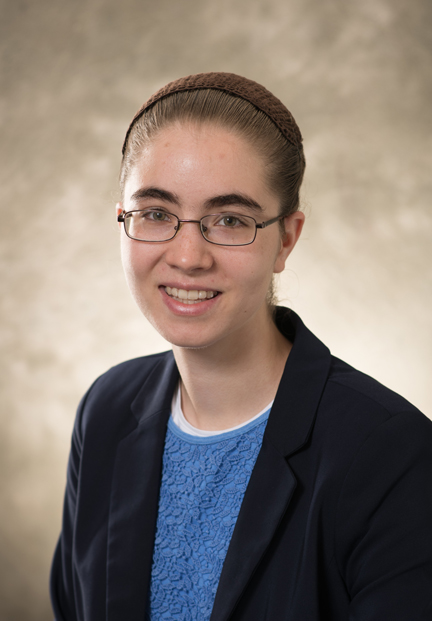ELISABETH MARTIN
JUNIOR UNDERGRADUATE, BIOENGINEERING
CANCER SCHOLARS PROGRAM
HOW DID YOUR EDUCATIONAL PATH LEAD YOU TO CANCER RESEARCH?
I am studying Bioengineering with a track in Imaging and Sensing. I plan to minor in Spanish and Electrical Engineering. I chose to pursue Bioengineering and medicine because it combined my deep interest in science, math, and human biology with the real impact to help people. Several of my family members, including three grandparents, have passed away from cancer, and one of my dreams since high school has been to work on technology that could routinely screen people for cancer so that it could be detected as early as possible.
HOW HAS BEING IN THE CANCER SCHOLARS PROGRAM HELPED YOU TOWARDS YOUR GOALS?
I learned about the Cancer Scholars program in the summer before my freshman year through the Bioengineering department website, which highlighted different educational opportunities. I have had many benefits from the program, including encouragement to begin research early, which has led to several amazing opportunities for me. I have also appreciated the support from my amazing peer cohort and the engaged faculty who have taught and presented in the Cancer Scholars classes which have helped me gain a broader understanding of cancer and technology as a field.
WHAT ARE YOU CURRENTLY WORKING ON?
My research seeks to understand the optical and functional properties of extracellular vesicles, which are small packages that cells – especially cancer cells – release to their environment. My lab uses several label-free optical techniques, which means that we use lasers to image biological samples without having to add any exogenous dyes or labels; this is exciting because it gives us insights into properties of the sample without introducing anything foreign. This has a lot of exciting applications for in vivo imaging in real patients.
WHAT IMPACT WILL YOUR RESEARCH HAVE ON SOCIETY?
The work we are doing has implications for a potential diagnostic method for cancer. The goal is to extract these vesicles from a patient sample like urine or blood and analyze them for the presence of certain biomarkers that will provide information about the disease state. The work I do is helping unravel the ways in which storage changes the properties of these vesicles, so that we can better understand the time-sensitivity of samples for analysis.
WHAT DO YOU ENJOY ABOUT WORKING IN YOUR LAB?
My favorite part of lab is the supportive, close-knit group of scientists who have helped me grow personally and academically. A close second would be a deeper understanding of the topics I study and learning the skills that enable me to work independently on my project.
WHAT HAVE YOU LEARNED FROM WORKING IN A LAB?
One thing I have learned is that research does not always follow the timetable you expect. Sometimes the imaging system is down, and we are not able to image, or the cells are not growing like we want them to and we have to wait until they are ready.
WHAT KIND OF RESEARCH PROJECTS HAVE YOU WORKED ON?
I really love the variety of work that I get to do in the lab – some of my tasks include taking care of cells, analyzing samples using a standard particle sizing machine, preparing samples for imaging in our home-built system, using MATLAB to analyze data, and creating figures to report my findings. In the future, my next project will involve imaging of cells and understanding their metabolism.
WHAT DO YOU LIKE TO DO OUTSIDE OF YOUR RESEARCH AND SCHOOLWORK?
Aside from schoolwork and research, I keep myself busy through volunteering with the HeRMES clinic on campus and Carle Hospice and tutoring. In my free time, I love learning languages, trying something new, playing piano and violin, and spending time with family and friends.

